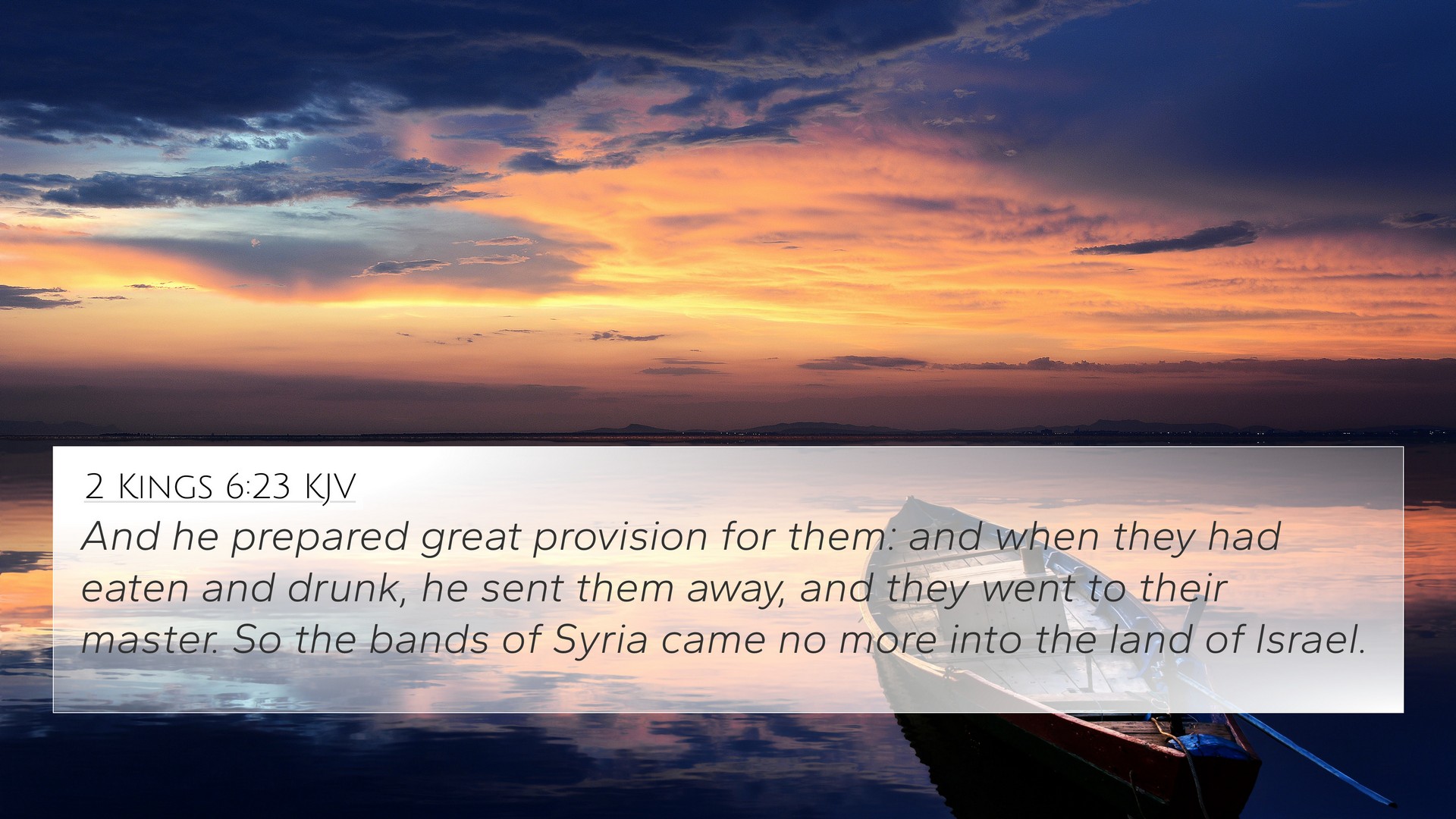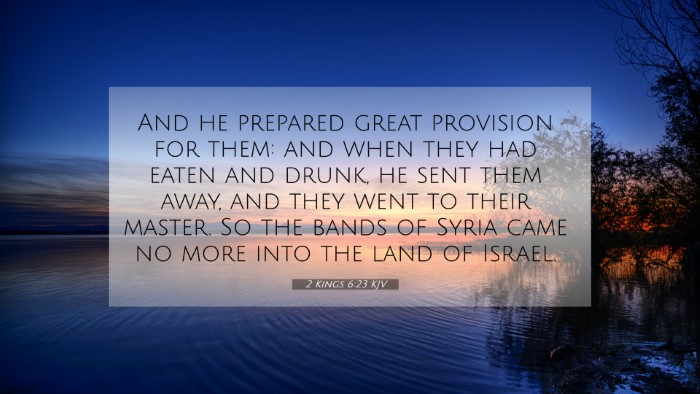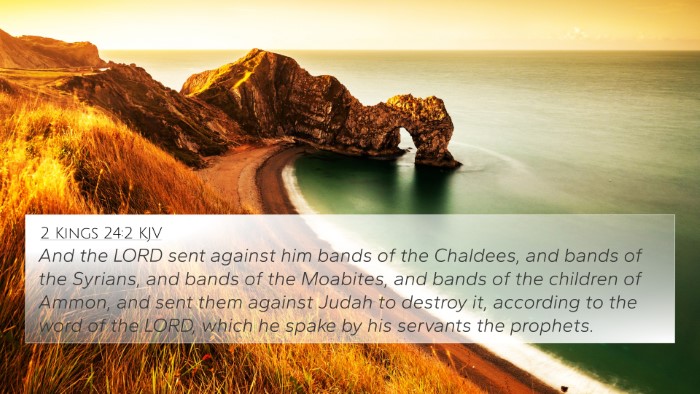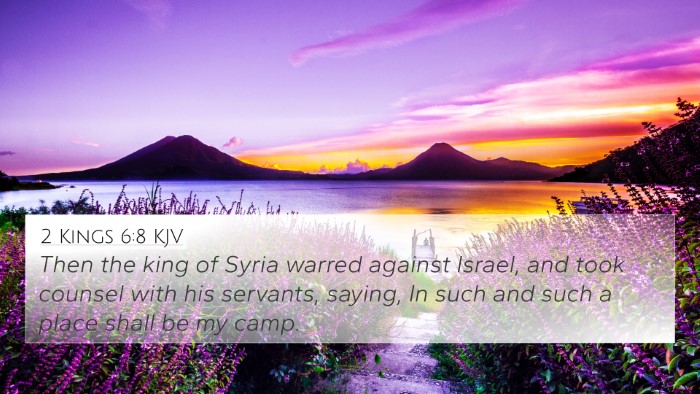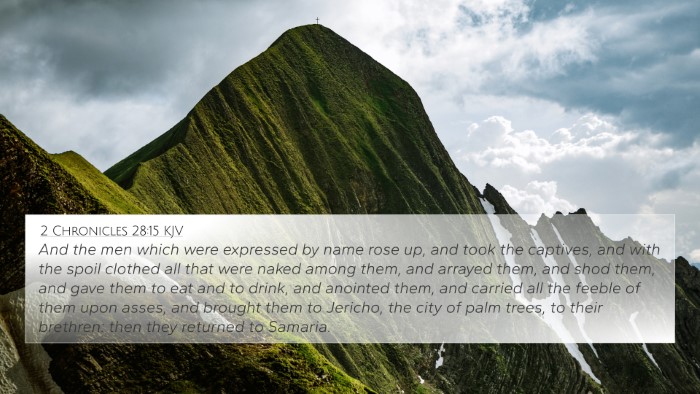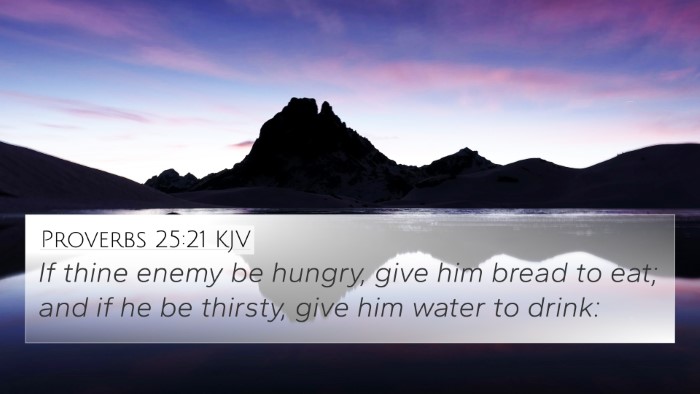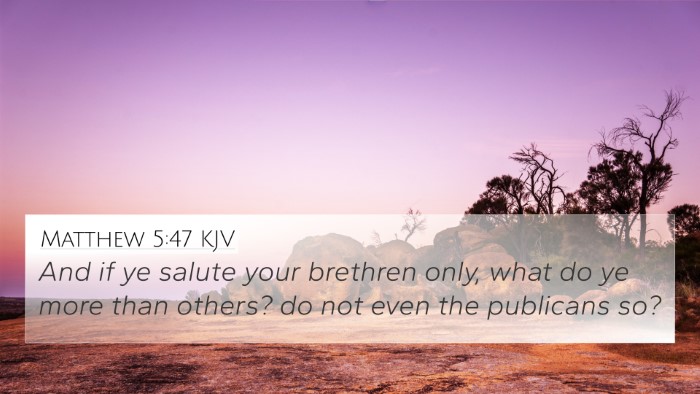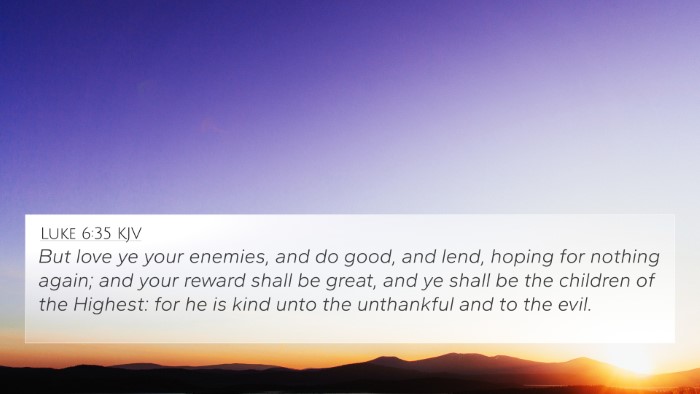Understanding 2 Kings 6:23
2 Kings 6:23 states, “So he prepared a great feast for them: and when they had eaten and drunk, he sent them away, and they went to their master. So the bands of Syria came no more into the land of Israel.” This verse reveals a significant moment in the narrative of the conflict between Israel and Syria during the prophet Elisha’s ministry.
Contextual Overview
The backdrop of this verse is a time of intense hostility between Israel and the kingdom of Syria. The king of Syria had sent a band of soldiers to capture Elisha, but God intervened, revealing the location of the Syrian troops to the prophet. This led to a miraculous event where Elisha guided the besieging troops to Samaria, where they were beset by Israel. In this moment of potential warfare, Elisha exhibits grace and mercy, preparing a feast for his enemies.
Biblical Commentaries Insights
- Matthew Henry's Commentary: Henry emphasizes the act of kindness shown by Elisha towards his captors. Instead of seeking vengeance, Elisha’s hospitality reflects Christian principles of love and forgiveness. This act serves as a testament to the power of mercy and how it can change the hearts of adversaries.
- Albert Barnes' Notes: Barnes points out that Elisha’s actions were not just a display of generosity but a strategic move to demonstrate the benevolence of Israel. By maintaining the life of the soldiers and treating them well, he hoped to dissuade them from further aggression against Israel.
- Adam Clarke's Commentary: Clarke notes that this moment illustrates God’s sovereignty. The fact that the Syrians, after experiencing kindness instead of hostility, cease their incursions into Israel highlights how divine intervention can lead to peace, showcasing the power of love and forgiveness over violence.
Thematic Connections and Cross-References
Understanding the themes and connections in this verse can be enhanced by cross-referencing with other Biblical passages. Here are some significant connections:
- Luke 6:27-28: Jesus’ teachings on loving one’s enemies resonate with Elisha’s actions.
- Proverbs 25:21-22: “If your enemy is hungry, give him bread to eat; And if he is thirsty, give him water to drink.” This illustrates the same principle of kindness to adversaries.
- Romans 12:20: Paul’s exhortation to feed your enemy draws a parallel to Elisha, urging believers to overcome evil with good.
- Matthew 5:44: Jesus’ command indicates that love should be extended even toward those who wish us harm, mirroring Elisha's behavior.
- 1 Peter 3:9: This verse urges believers not to repay evil for evil, aligning with the mercy shown by Elisha.
- Hebrews 13:2: This verse reminds believers to show hospitality, suggesting that such kindness could have profound implications.
- Acts 7:60: Stephen’s martyrdom, where he asks for forgiveness for his executioners, reinforces the theme of mercy over revenge.
- James 2:13: The concept of mercy triumphing over judgment is relevant when considering Elisha’s actions.
- Proverbs 16:7: “When a man's ways please the Lord, He makes even his enemies to be at peace with him.” This highlights God’s role in reconciliation.
- Matthew 25:35: “For I was hungry and you gave Me something to eat; I was thirsty and you gave Me something to drink…” relates to the nature of service and kindness to others, including enemies.
Applications and Reflections
This narrative encourages readers to reflect on their interactions with those who oppose them. The example set by Elisha can prompt thoughtful consideration about how we, as believers, respond to antagonism or hostility. It challenges the reader to engage in acts of kindness that may serve to disarm conflict and promote peace.
Tools for Cross-Referencing
For those exploring the interconnectedness of scripture, utilizing various tools can enhance the understanding of Biblical texts:
- Bible concordance: Helps locate specific keywords and their use across scripture.
- Bible cross-reference guide: Contains lists of biblical verses that relate to one another.
- Cross-reference Bible study methods: Encourages deeper exploration of scripture through thematic study.
- Bible reference resources: Provides insight into the links between different verses.
- Bible chain references: A method for tracing themes and narratives throughout the Bible.
Conclusion
In summary, 2 Kings 6:23 serves as a profound illustration of mercy and God’s sovereignty in the lives of His people. Through the lens of various commentaries and cross-referenced scriptures, we can glean deeper spiritual insights and practical applications for living a life reflective of Christ's teachings. The interconnectedness of this passage with others reinforces the Christian call to love, forgive, and show kindness, even to those who may oppose us.
